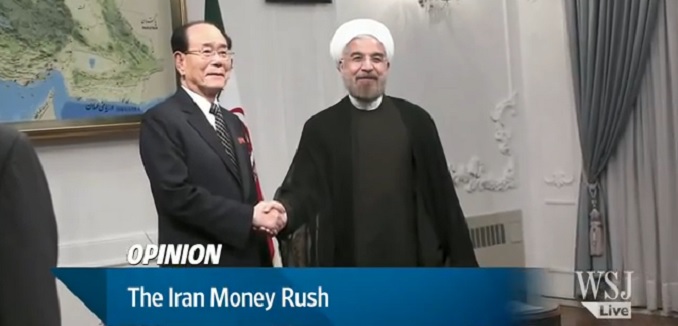The erosion in the international sanctions regime against Iran has generated what the Wall Street Journal last week described as “a steady flow of Western executives” – a signal that the outlet read as suggesting that “economic detente with the rest of the world may be on the horizon” – generating renewed concerns among journalists and analysts that the Obama administration may have been over-optimistic when it repeatedly insisted that the interim Joint Plan of Action (JPA) would not leave Iran open for business.
Emanuele Ottolenghi and Benjamin Weinthal, respectively a senior and a research fellow at the Foundation for Defense of Democracies, had on Tuesday published an extensive description of Swiss economic activity with the Islamic Republic under the headline “Switzerland Is Open To Iranian Business.”
Switzerland, aside from playing host to Rouhani’s charm offensive and negotiations over Iran’s nuclear program, is not only ready to join other European companies in their business rush to Tehran; it continues to play host to Iranian procurement efforts.
As if Swiss nonchalance about sanctions and business with Iran were not enough, Iran continues to use Switzerland as an intermediate point in its efforts to sell oil, finance and conduct procurement, and generally speaking cover its sanctioned activities through a thick layer of intermediate companies.
The reports came alongside others noting that Iran is on track to exceed its permitted oil exports for the fifth straight month and that it is now in position to become the largest gas storage facility holder in the region.
Analysts reacting early to the JPA had explicitly warned that reducing sanctions risked triggering a downward spiral as companies scrambled to access reopened Iranian markets – the dynamic has since been described variously as a feeding frenzy and a gold rush – and they had called for the administration to firmly signal to Tehran that failure to dismantle its nuclear program would be met in the future with crippling financial restrictions.
Those concerns were derided as “fanciful” by analysts linked to the administration, and the White House subsequently expended significant political capital to block Congressional legislation that would have imposed future sanctions if nuclear negotiations failed.
[Photo: WSJDigitalNetwork / YouTube]




